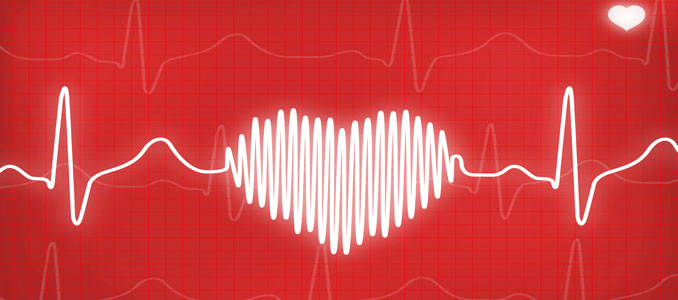HGH after Heart Attack: Benefits, Side Effects, How to Start Therapy
Chronic heart failure is a term that no one wants to hear. A heart attack can be scary no matter what a person’s age, but the younger one is, the more years ahead filled with fear. That does not have to be the case. There is a lot that a person can do today to protect him or herself from heart attacks, and one particular area will be covered in this report – the use of HGH after a heart attack.
A small study conducted at the University of Naples in Italy took a look at whether growth hormone therapy would provide benefits for heart disease. The report was published in the online Journal of the American College of Cardiology and found that using HGH for heart disease resulted in a significant increase in peak oxygen consumption over a period of 4 years.
Many health conditions can put a person at risk for a greater chance of being diagnosed with growth hormone deficiency, and heart disease is one of them. Research has shown that roughly forty percent of patients with chronic heart failure have growth hormone deficiency. That is a powerful link between HGH and heart attack. Short-term growth hormone replacement has been shown to improve cardiac functions.
The benefits included:
- Increased peak oxygen consumption
- Significant reductions in left ventricular end diastolic and end systolic volumes indexes
- A 10% increase in left ventricular ejection fraction
An important factor stemming from this study was that subsequent hospitalizations for worsening heart failure were indeed lower in the group that received HGH than the control group receiving a placebo. Since this was a small study, longer and larger trials were recommended.
The Benefits of Using HGH following a Heart Attack
There are certainly benefits for using HGH therapy following a heart attack. Growth hormone imparts effects directly on myocardial growth and function.
The HGH heart benefits from treatment can be found below:
- Improved exercise capacity – this allows for the individual to engage in heart-beneficial exercises for longer periods of time
- Increased left ventricular posterior wall thickness
- Increased left ventricular mass
- Improved clinical symptoms resulting from heart failure
- Decreased pulmonary capillary wedge pressure (PCWP) at rest and after sub-max exercise
- Increased cardiac output and performance
- Reduced vascular resistance
General issues of using HGH after heart attack may be the same as in those who have not been faced with cardiac concerns.
These benefits include:
- Loss of abdominal fat
- Increased lean muscle mass
- Improved bone mineral density
- Increased energy and endurance
- Improved libido and sexual performance
- Enhanced cognitive functions and memory
- Better mood
- Deeper sleep
Each of these positive effects is only going to impart improvements regarding HGH and the heart. As body fat mass is lowered and lean muscle is increased, the heart will benefit. Engaging in sex is good for the heart, as is a positive outlook and a restful night’s sleep. In other words, using HGH therapy to improve heart health features both direct and indirect benefits.
Side Effects of HGH for Cardiovascular Disease
Any type of medical treatment, including over-the-counter medications, will carry a set of risk factors. There are side effects of using HGH for heart disease, but these are the same side effects that any person would be at risk of getting – with or without cardiovascular disease.
It is crucial to point out that the overall chances of any adverse effects being seen are extremely small, especially when HGH therapy has been prescribed by a knowledgeable and experience hormone replacement therapy specialist. Maintaining a very low dose, especially in the early stages of treating a deficiency of HGH and heart disease in an individual will help prevent side effects from occurring.
Here are the most common, although infrequent, side effects of HGH:
- Enlarged breasts
- Fluid retention
- Diabetes
- Orthostatic hypotension
- Carpal tunnel syndrome
For individuals dealing with growth hormone deficiency, HGH and heart problems may seem to go hand in hand, as fatigue, low endurance, decreased exercise capacity, and associated symptoms can reduce the quality of one’s life. Treatment with HGH therapy can improve all of these areas, and possibly prolong life.
In the past, there was a concern that the use of HGH causes heart attack, but that has not been proven, whereas the benefits of treatment with low-dose human growth hormones has been shown. The important factor is ensuring that the dosage prescribed is low enough to get the job done without being too high to cause risky side effects.
Receiving HGH Therapy for Heart Health
Overall, the use of HGH and heart health clearly go together. It is up to a specialist to determine if human growth hormone therapy is warranted. This is done by first getting a detailed blood analysis that will show if GH deficiency is an issue. If a person is not deficient in growth hormone than this treatment would not be prescribed. Only someone with a verifiable GH deficiency should use HGH injection therapy.
National HRT is a hormone replacement therapy clinic that works with both women and men throughout the US. Our goal is to provide the finest level of care to individuals dealing with hormonal deficiencies and imbalances. If you would like to learn more about HGH and heart health, or have any questions at all about hormonal issues, please contact us for a complimentary consultation.



